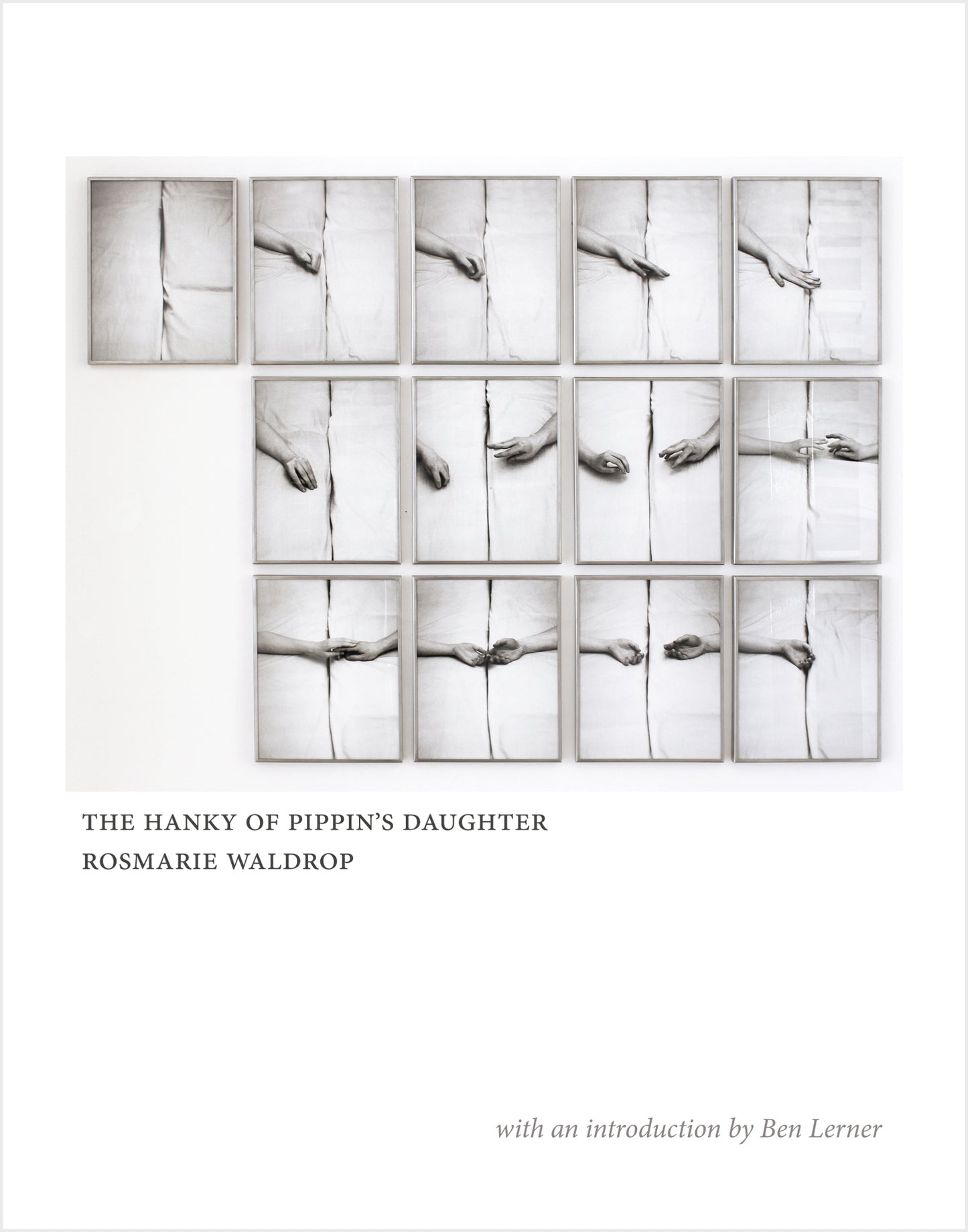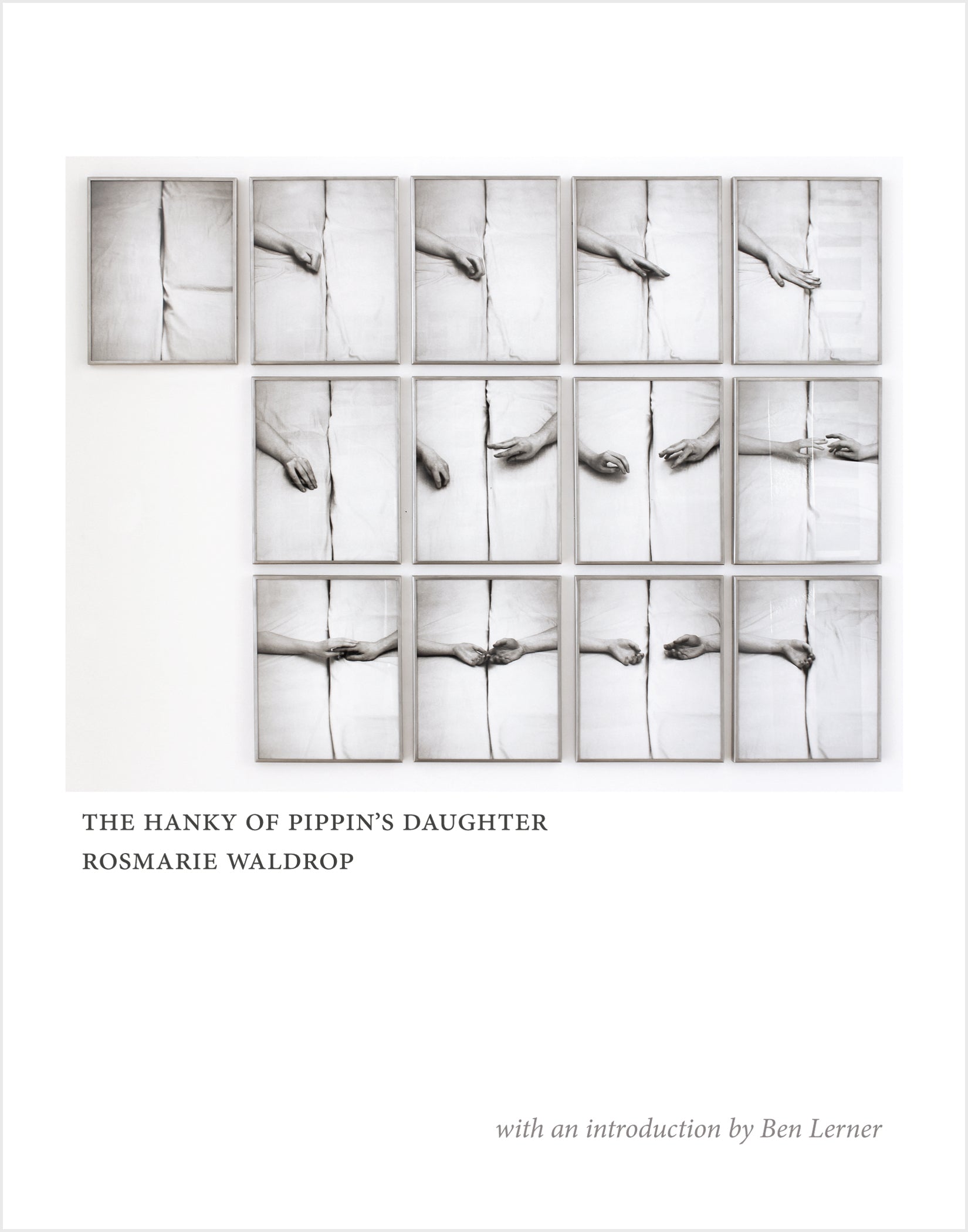A novel of desire and parentage and scandal and the interplay of personal and political circumstances, The Hanky of Pippin’s Daughter is—like many great novels—also about the problem of narration.
—Ben Lerner (from the introduction)
Wonderfully, relentlessly absorbing, Hanky’s several overlapping tales leave one marveling at the beauty, economy, and humor with which Waldrop interweaves the complex tensions of Hitler’s Germany in a family drama of repeated infidelity. Delightfully rich and bawdy and as strong-willed as its characters.
—Lydia Davis
[T]he whole novel forms a poetic sequence from which a discourse about origins—psychological, legendary and historic—unfolds. . . . Readers will find in this ambitious, at times brilliant fiction a passionate articulation of a painful and guilt-ridden memory.
—The New York Times
This lyrical first novel continues the experimentalism that has been Waldrop’s trademark . . . a stunning work.
—Library Journal
Honestly, the novel is a joy to read, the kind of reading where you’re almost smiling? I really think there’s nothing like it. In this reissue, Dorothy—in the book’s 5.5 x 7 in. shape, clean white cover with a Rudolf Bonvie series of repeating, slightly changing photographs of hands reaching across a divide, like Lucy’s looping narrative, a layered history of human interaction—brings the pleasure of Waldrop’s physical prose to the book form itself, making a lovely, lovely object.
—Kelly Krumrie, Full Stop
Hanky is lush, lyric, and darkly funny. It’s an iconic addition to the Dorothy family.
—Nate McNamara, Literary Hub
Rosmarie Waldrop is best known for her wonderful poetry and translations. Now she should be known for her prose fiction, The Hanky of Pippin’s Daughter is an extraordinary book.
—Dallas Wiebe, Small Press Review
Waldrop’s gratifyingly complex novel . . . powerfully models the desire, and the moral responsibility, to know one’s history.
—Publishers Weekly
In probing longings, dissatisfactions, betrayals in the life of a German family, it is Germany itself—its ambivalence in regard to its unresolved past—that is being examined in Rosmarie Waldrop’s supremely intelligent novel. The Hanky of Pippin’s Daughter is a remarkable achievement.
—Walter Abish
A work of fiction written unmistakably by a poet . . . a novel rare for its evocation of the early experience of its protagonist, who grows up in the Germany of Hitler’s era, and of the unique womanhood she eventually creates for herself after the Second World War and far beyond her native Germany. The resonance of even the title of Rosmarie Waldrop’s first venture into fiction—The Hanky of Pippin’s Daughter—suggests the qualities of this novel.
—John Hawkes
A short, electric first novel. . . .Waldrop’s prose is unsettling and evocative, like the events she explores. . . . She makes dazzling use of repeated actions; the same dreams, the same gestures, the same places return again and again, but so fine and powerful is Waldrop’s use of the device that the stings of betrayal grow deeper, the tiny actions more and more profound. . . It is not the least of Waldrop’s talents that she is very, very funny, and she sharpens her black humor to a knifelike edge that makes the punchlines hurt . . . the novel is stunning, an incisive portrayal of the proposition that the history of lies is the vital task of history itself.
—Stacey D’Erasmo, The Village Voice
Broken into sections with titles like "Portrait of Frederika as a Control Tower," Waldrop’s examination of a private domestic war inside a world war might be considered in relation to Gertrude Stein’s Lifting Belly, the celebration of an erotic love life inside the same world war.
—Forrest Gander, “7 Great Novels Written by Poets,” Literary Hub
This novel is worth the considerable effort it requires. . . . Waldrop writes in a rich, intelligent style full of musical imagery. The rhythms of language are honored here.
—Providence Sunday Journal
This lyrical first novel continues the experimentalism that has been Waldrop’s trademark both as poet and as publisher of Burning Deck Press. Constituting a woman’s letters to her sister, it narrates the attempt of both to come to terms with their marriages and affairs between marriages. . . . The narrative is fragmented, which can make it difficult both to tell a complete story and to create characters with whom readers identify. Waldrop successfully avoids these pitfalls, producing a stunning work.
—Soho Weekly News
A re-issue of the 1986 epistolary novel, The Hanky of Pippin’s Daughter is a reminder that Rosmarie Waldrop is a master of prose fiction and poetry.
—Electric Literature






